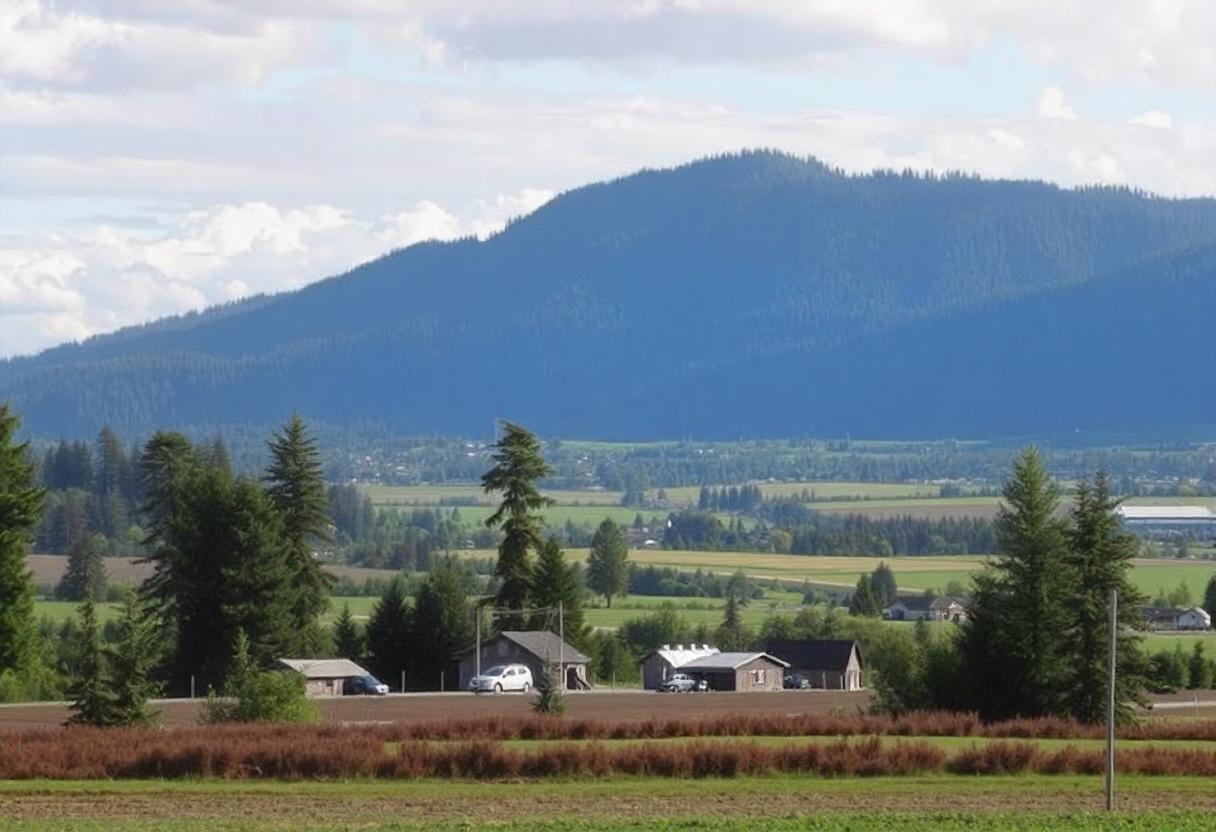
Vancouver Island, located on Canada’s Pacific Coast, boasts a unique climate and geography that support a wide range of agricultural activities. With its mild winters, long growing seasons, and rich soils, the island has become a hub for sustainable farming practices, specialty crops, and local food production.
Climate and Geography of Vancouver Island
The climate on Vancouver Island is predominantly maritime, with coastal regions benefiting from moderate temperatures and consistent rainfall. This creates an ideal environment for certain crops that thrive in temperate climates. The island’s mountainous interior, however, presents challenges for large-scale farming, as most of the agricultural land is located in the low-lying coastal areas.
The region’s growing season can extend from early spring to late fall, allowing for multiple harvests of certain crops and year-round farming opportunities for some produce, like root vegetables, leafy greens, and berries.
Key Agricultural Products
Farms on Vancouver Island produce a variety of crops, ranging from fruits and vegetables to livestock. Notable products include:
- Berries: The island’s climate is perfect for growing strawberries, blueberries, and raspberries, which are sold both fresh and as value-added products like jams and sauces.
- Vineyards and Wineries: Vancouver Island’s cool climate has encouraged the growth of the local wine industry. Many vineyards produce high-quality wines, particularly from varietals like Pinot Noir and Ortega.
- Dairy and Livestock: Dairy farming remains a significant industry on Vancouver Island, with local farms producing milk, cheese, and yogurt. Small-scale livestock farming, including poultry, beef, and lamb, also contributes to the island’s agricultural output.
Local Farming and Sustainability
Vancouver Island is known for its commitment to sustainable farming practices, with many farms focusing on organic production, permaculture, and environmentally friendly techniques. The movement toward local, sustainable agriculture has been driven by community-supported agriculture (CSA) programs, farm-to-table initiatives, and farmers’ markets.
The island’s small-scale farms often embrace practices that reduce carbon footprints, such as crop rotation, composting, and the use of renewable energy sources. These farms also play an important role in local food security, ensuring that island residents have access to fresh, locally grown produce.
Challenges Facing Vancouver Island Agriculture
Despite its successes, agriculture on Vancouver Island faces several challenges. One of the primary concerns is the availability of arable land. With much of the island’s landscape being mountainous or forested, farmland is limited and often expensive. Urban development and population growth have also put pressure on agricultural areas, leading to increased competition for land.
Another challenge is the island’s reliance on imported food, which affects local farmers’ ability to compete with lower-priced goods from other regions. The cost of transporting goods to and from the island adds to the expense of farming, making it difficult for some operations to thrive.
The Role of Technology and Innovation
In response to these challenges, many farmers on Vancouver Island are turning to technology and innovation to increase efficiency and productivity. Greenhouse farming, for example, has allowed for year-round production of crops like tomatoes, peppers, and cucumbers. Vertical farming and hydroponic systems are also being explored to maximize space and reduce water usage.
In addition, technology has played a key role in marketing and distribution. Farms increasingly rely on online platforms and social media to reach customers directly, reducing the need for intermediaries and improving profitability.
The Future of Agriculture on Vancouver Island
The future of agriculture on Vancouver Island looks promising, with growing demand for local, sustainable, and organic food products. Initiatives to support young farmers, enhance local food networks, and promote agricultural tourism are gaining momentum. Government programs and community organizations are also working to protect farmland and ensure the long-term viability of agriculture on the island.